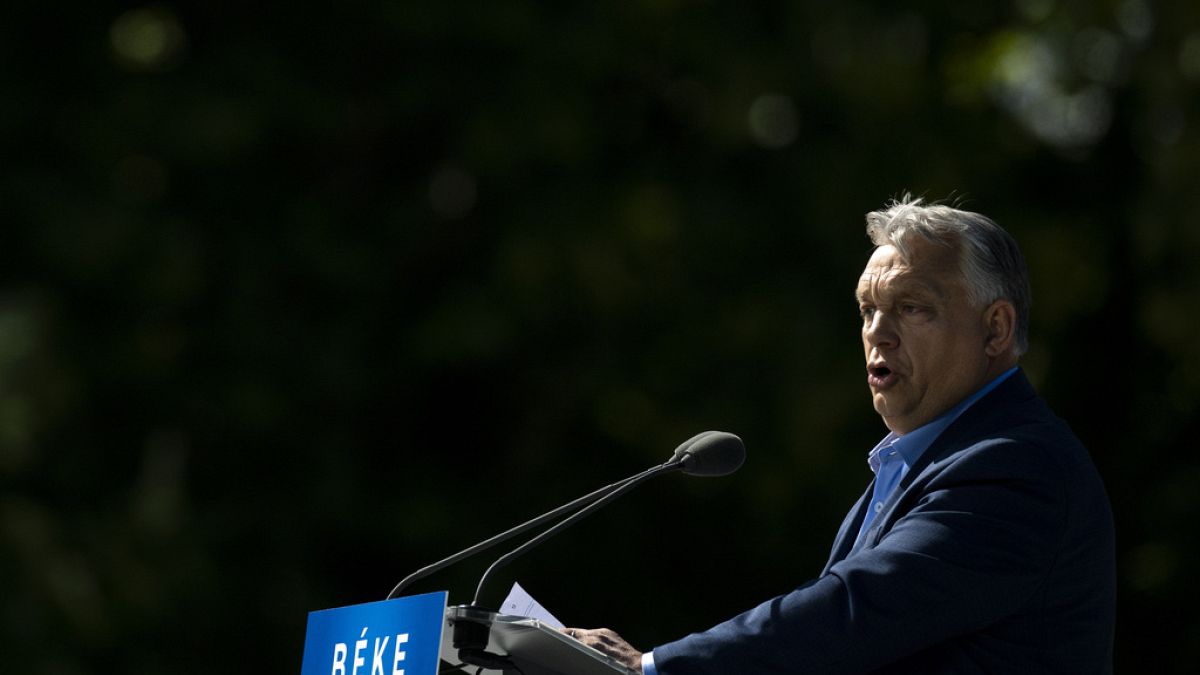The Sovereignty Protection Office in Hungary has recently come under scrutiny for its investigations into civil society groups that receive foreign funding. The European Commission has raised concerns about the office, accusing it of violating democratic values and fundamental rights. The Hungarian government denies that the office aims to stifle freedom of information, stating that it is independent and provides clarity on funding for NGOs. However, Transparency International Hungary, a non-governmental organization, has criticized the office for false claims made against them. The organization believes they are being targeted after questioning Chinese state finance loans to the Hungarian government.
The controversy surrounding Hungary’s Sovereignty Protection Office stems from its investigations into civil society groups that receive foreign funding. The European Commission has accused the office of violating democratic values and fundamental rights, leading to legal proceedings against Hungary. The Hungarian government, however, maintains that the office is independent and aims to provide transparency on NGO funding. Transparency International Hungary, a targeted organization, has refuted the claims made against them by the office and criticized the lack of transparency surrounding Chinese state finance loans to the Hungarian government.
The new Sovereignty Protection Office in Hungary has sparked a debate about the government’s attempts to monitor and control civil society groups. The office, established by Prime Minister Viktor Orbán’s nationalist party, Fidesz, has the power to investigate organizations that receive foreign funding and influence public debate. The involvement of Hungary’s secret services in these investigations has raised concerns about the independence and impartiality of the office. Transparency International Hungary has been vocal in its criticism of the office, claiming that it is being unfairly targeted for questioning Chinese state finance loans to the Hungarian government.
Minister of European Affairs János Bóka has defended Hungary’s Sovereignty Protection Office, stating that it is institutionally independent from the government. However, critics argue that the office’s actions are politically motivated and aim to silence dissenting voices. The accusations made against Transparency International Hungary have raised questions about the government’s commitment to freedom of information and transparency. The office’s broad mandate to investigate any groups or individuals that receive foreign funding has also sparked concerns about privacy and civil liberties in Hungary.
The case of Transparency International Hungary and its conflict with Hungary’s Sovereignty Protection Office highlights the challenges faced by civil society organizations in the country. The government’s efforts to monitor and control NGOs that receive foreign funding have raised concerns about freedom of information and transparency. The involvement of Hungary’s secret services in these investigations has further complicated the issue, leading to accusations of political interference. As the controversy continues to unfold, the European Commission’s legal proceedings against Hungary could have far-reaching implications for the country’s relationship with the European Union and the protection of democratic values.
In conclusion, Hungary’s Sovereignty Protection Office has come under fire for its investigations into civil society groups that receive foreign funding. The European Commission has raised concerns about the office’s violation of democratic values and fundamental rights, leading to legal proceedings against Hungary. Transparency International Hungary, a targeted organization, has criticized the lack of transparency surrounding Chinese state finance loans to the Hungarian government and the false claims made against them by the office. The controversy surrounding the Sovereignty Protection Office highlights the challenges faced by civil society organizations in Hungary and raises questions about the government’s commitment to freedom of information and transparency.










